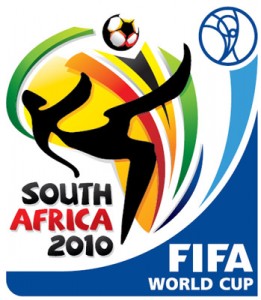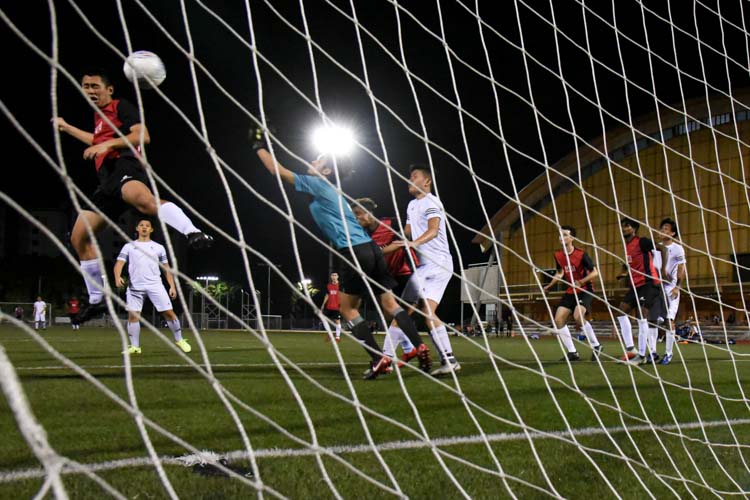By Jan Lin/Red Sports

If the cost of the World Cup has truly escalated so much, then why is Singapore the only one bearing the brunt?
Be slow to cast the first stone at FIFA for they are but the governing body of the world’s most popular sport. We can accuse FIFA of being “greedy” and yet this is but a case of greed-for-greed. Singapore tempted and aroused FIFA’s “greed” in a Game that the country and its citizens are bound to lose.
It’s like this.
In 2006, when StarHub was in sole possession of football on pay-TV, consumers were paying around $25 a month to watch international football leagues on TV. A top-up of $15.75 then allowed existing sports subscribers to watch the 2006 World Cup while non-subscribers topped up with $26.25 to enjoy the same package.
Fast forward three years, the year before the 2010 FIFA World Cup, SingTel waged war on StarHub in an attempt to break StarHub’s monopoly in the lucrative football pay-TV business. It is simple economics theory that competition ought to lead to affordable prices but SingTel clearly underestimated FIFA.
In any auction, the seller (i.e. FIFA) determines the starting selling price of its product and the eventual selling price is determined by the winning bidder (i.e. SingTel).
However, the bidding process would inform the seller the demand for its product, and in the next auction the seller adjusts the starting price according to the perceived demand.
SingTel’s winning bid to exclusively broadcast three English Premier League season starting August 2010 was believed to be between SGD300 to 400 million. This was an invitation for FIFA to strike the iron while it was red hot. Why were we even surprised that FIFA rejected Singapore’s first bid? And like every “hung parliament”, SingTel required a coalition with StarHub to secure World Cup rights.
So it is revealed that the cost of watching the 2010 World Cup for non-sports subscribers has tripled while for sports package subscribers, it has gone up by five times.
Let me repeat that: Five times.
It’s not a matter of affordability.
For an average Singaporean, $70 is not a lot of money.
It’s a matter of perspective.
In its obsession with securing the English Premier League rights, SingTel seemed to have forgotten that in the world of sports, football is not everything. StarHub responded by securing exclusive rights to the National Basketball Association (NBA) which has forced fans of both sports to subscribe to both operators.
While it is true that there has not been a significant price hike subscribing to both operators, what has transpired in all this is that in Singapore, the supposed “World’s number two ultimate sports city”, sports has at many levels been dominated, compromised and victimized by profit-making businesses.
The sports-business relationship should exist as a symbiotic one where the tangible (i.e. money) and intangible (i.e. culture) benefits from businesses ideally returns to develop the sports industry. As seen in Singapore, or specifically in the case of pay-TV operators, the aim is just to have the cake and eat it themselves.
Far from qualifying for the 2010 FIFA World Cup and redeeming a local footballing culture that had united the nation once, the nation instead is now bearing the cost of a poorly executed business strategy in the name of football. It remains to be proven how the 2009 EPL bidding war was at all necessary in first place.
In March 2010, both operators conceded a first cooperative move when SingTel agreed to share its channels on StarHub set-top boxes. A clever move that will allow StarHub to retain its subscribers and save them the hassle of having two set-top boxes.
Whether Singaporeans endorse the seemingly exploitative behavior of sports businesses in Singapore can be reflected by how Singaporeans respond to the five-fold increase in the 2010 World Cup consumer’s cost courtesy of a bidding fiasco. For a football-loving Singaporean, you may choose to pay, but do it with eyes wide open.
(And I may just keep my M1 mobile line for life now.)
Across the Causeway, it is reported that Malaysia’s free-to-air TV channels will broadcast more than half of the 2010 FIFA World Cup matches. Malaysia’s pay-TV operator, Astro, charges RM66.95 (approx SGD30) for their comprehensive cable TV plus sports package, which will include the 2010 FIFA World Cup.
In July 2009, Astro did increase its sports package cost by RM12 (approx SGD5) citing the rise of content cost as the reason, but at the same time, asserted that the operator has “helped offset some of the high cost to make it possible for customers to continue to enjoy world class, premium, live sports events”.
Malaysia’s leading telco provider, Maxis, also just announced that their mobile customers will enjoy “live” streaming of the matches of the 2010 FIFA World Cup online and on their mobile smartphones at no extra cost other than the regular data charges. A bargain option for Malaysians on unlimited data plans.
No wonder they say, ‘Malaysia Boleh’.
Singapore? ‘Money No Enough’.











@chen – No, Neither Singtel nor Starhub has Astro sports content though Singtel offers other Astro entertainemnt content 🙂
can we get astro here? they do offer subscription in east malaysia and brunei thou